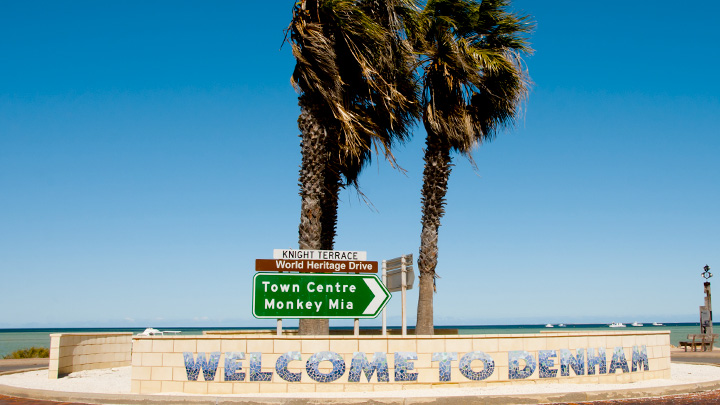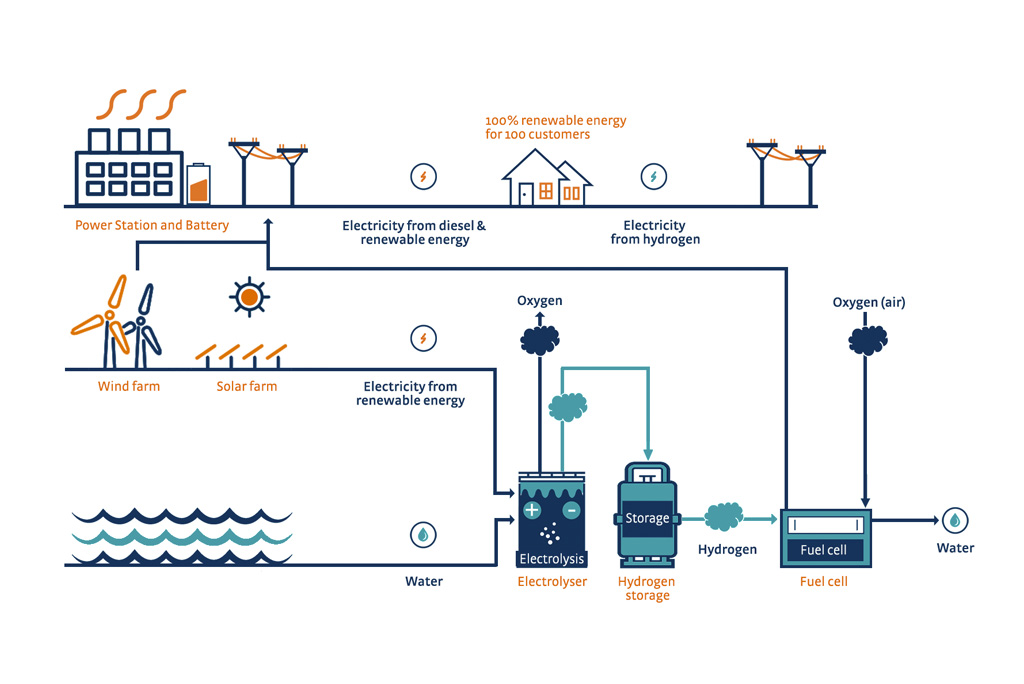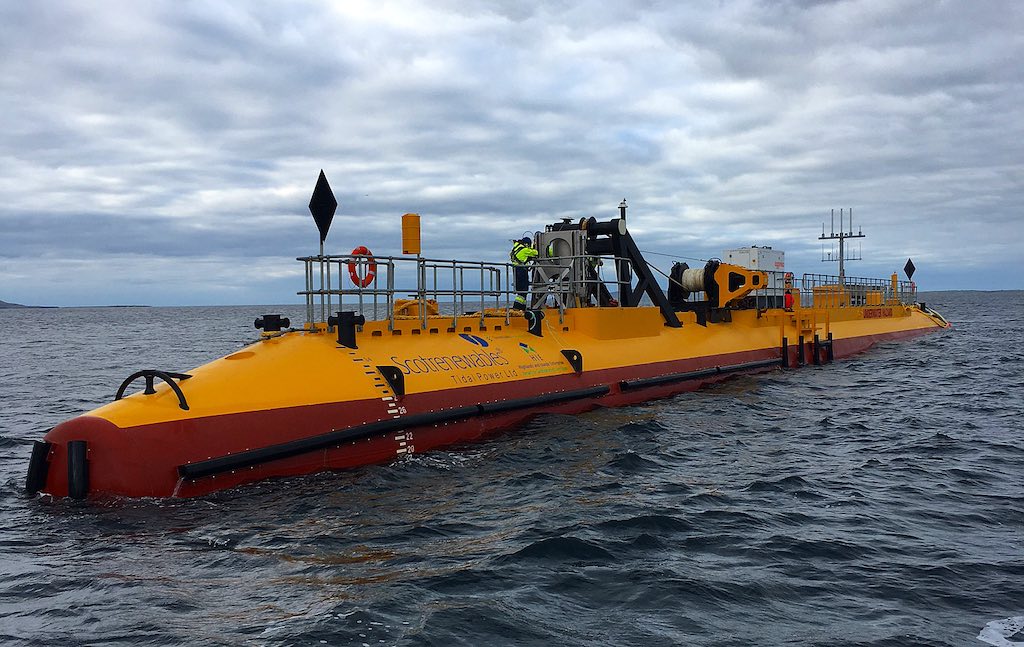Hydrogen to repower pristine coastal community
Best known for close encounters with wild dolphins, Denham in Western Australia’s remote Gascoyne region has been chosen for an innovative green hydrogen demonstration project.

A picturesque coastal town in Western Australia’s Shark Bay World Heritage Area is on course to be powered entirely by renewable energy.
Located about 800kms north of Perth, Denham’s energy needs are currently met by a wind farm and forty year old diesel generators, which are due for replacement.
Denham hydrogen demonstration project
Now, with support from ARENA, Western Australia’s remote energy provider Horizon Power is embarking on a hydrogen demonstration project to replace the diesel generators with a 348 kW electrolyser and 100 kW hydrogen fuel cell.
Powered by a 704 kW solar array, the system will supply electricity to Horizon’s 530 local customers and demonstrate hydrogen as a viable option to power remote microgrids. If successful, the technology could be rolled out across Horizon’s portfolio and other regions that rely on off grid power.

While there are losses associated with converting electricity to hydrogen and back, storing wind and solar power as hydrogen will provide a dependable, on-demand supply of electricity to meet the town’s needs at all times. The new plant will deliver 526 MWh of dispatchable generation, enough to power the equivalent of 100 homes.
Providing renewable alternatives
The $8.9 million demonstration project has received $2.57 million in ARENA funding and $5.7 million from the Western Australian Government, including $1 million from the Western its Renewable Hydrogen Fund.
It will be the first project of its kind to be deployed in Australia, building on trials and feasibility studies underway to produce renewable hydrogen for industry and direct injection into the natural gas grid.
ARENA CEO Darren Miller said Horizon Power’s demonstration would be a great test of whether renewable hydrogen can displace diesel in remote communities.
“Remote and off-grid communities like Denham suffer from high energy costs due to costly diesel-based energy generation systems. The potential for these communities to generate, store and use their own renewable energy could simultaneously reduce costs and reduce emissions without sacrificing the reliability of energy supply,” Mr Miller said.
“Clean hydrogen could be a major export industry in the future, but in the near term we can utilise renewable hydrogen for domestic purposes and we’re excited to see how Horizon Power’s first-of-a-kind project could transform remote area power systems into state of the art renewable energy hubs.”
While the project will be the first time hydrogen has been used to power an Australian off grid community, Horizon will use similar electrolyser technology to that installed at other ARENA-backed projects, including hydrogen production and refuelling facilities being developed by Toyota in Melbourne and BOC in Brisbane.
“With projects like this and our $70 million commercial scale funding round, ARENA is hoping to reduce the overall cost of producing renewable hydrogen, in line with the National Hydrogen Strategy,” he said.
Construction is expected to commence in August next year and be commissioned by December 2021. The project will generate 30 jobs during construction and two ongoing operational roles.
Blueprint for off grid communities
Drawing tourists from around the world to feed dolphins and observe migrating whale and bird species, the town trades heavily on its pristine natural surrounds.
Horizon sees the transition to renewable energy is a natural progression, given the cost of transporting diesel to the remote location and riches of wind and solar power. To maximise the benefits for the region, they are looking to engage local suppliers to maintain the system over its lifetime.
Horizon Power CEO Stephanie Unwin believes the Denham project could provide a blueprint to transition other remote locations around Australia to renewable energy.
“This plant will demonstrate how hydrogen can reliably produce distributed power for our towns currently dependent on diesel fuel power systems and allow us to transition our network away from higher emission generating sources and meet our target of no new diesel generation systems from 2025,” Ms Unwin said.
“This technology has the potential to be an environmental game changer for many remote towns in Western Australia and other similar locations around Australia, and allow greater uptake of reliable cleaner, greener renewable energy sources in the future.”
Scotland’s Orkney Islands leading the way
Facing similar challenges to Australia’s remote communities – albeit in a vastly different climate – the Orkney archipelago off Scotland’s northeast coast has also turned to hydrogen to meet its energy needs.
With less sunshine on tap, Orkney is harnessing the power of the ocean to produce electricity to power its electrolyser, installing tidal turbines in the turbulent waters around the group of islands.

Construction of an electrolysis station at Shapinsay was completed in early 2019, which can now produce 500kg of hydrogen per day — enough to power vehicles, meet electricity demand, heat schools and even generate revenue by selling excess electricity. In the future, local authorities aim to power the network of ferries that link the islands with hydrogen, eliminating approximately one third of their fossil fuel consumption.
LIKE THIS STORY? SIGN UP TO OUR NEWSLETTER

ARENA